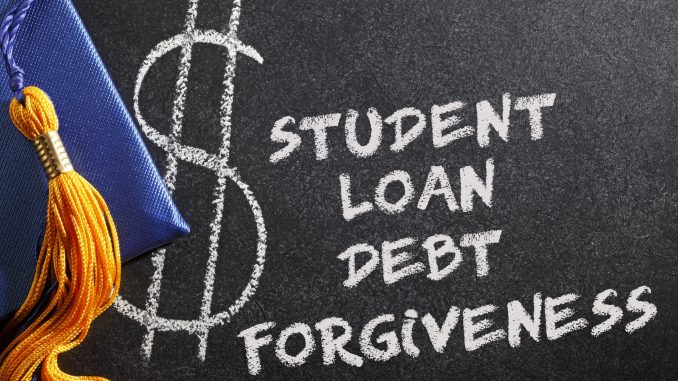
By Hank Russell
In late August, President Joe Biden issued an executive order seeking to waive student loans that will stand to benefit 45 million Americans who hold some type of student debt. Borrowers with outstanding loans who earn up to $125,000 a year will be eligible for forgiveness of $10,000 of that debt and up to $20,000 if the individual received assistance through Pell grants.
Fiscal analysts have estimated that the waiver would cost taxpayers anywhere from $300 million to $1 trillion over the course of a ten-year period. Those promoting loan forgiveness say it is a follow up of a campaign promise Joe Biden made in 2020 and will help free up financial burden on millions of Americans, allowing them greater upward mobility.
Critics claim that the plan is not loan forgiveness, but rather a transfer of payment from those who took on the debt and are expected to earn more than non-college graduates, to those who did not incur the debt and typically earn less. They also highlighted what they claim is the unfairness of forgiving those presently with loans, but not addressing those who did the responsible thing of paying off their loans in the past.
Steven Defede, a recent Stony Brook graduate sees both sides of the coin on this issue. “In the short term, this will help college students,” he says. “When they’re coming out of college, it’s hard for them to find jobs. Those people with a new degree are working part-time [jobs] or they’re working full-time jobs in retail, where they’re just making above minimum wage.”
But, in the long term, Defede says, that is when problems kick in. “Federal and state taxes will go up to pay back the loans. People will still have to pay back the [unforgiven] loan payments later on in life. I think that this will increase college costs, too.”
Another recent Stony Brook University graduate, Nick Cipolla, says that loan forgiveness is not about never having to pay back the loan, but about putting off the inevitable. “My generation is delaying the payment and our children will be forced to pay the bill,” he said, adding the amount of the forgiven loan amount will be offset “by increasing taxes.”
Former Obama economist Jason Furman noted that the forgiveness is irresponsible claiming that it will only fuel growing inflation, calling the plan “roughly [a] half-trillion dollars of gasoline on the inflationary fire that is already burning.”
Former Suffolk County Executive Steve Levy, author of Solutions to America’s Problems, states that loan forgiveness doesn’t get to the underlying problem of rising college tuitions.
“The problem with the student loan program is that, when the federal government agreed to take it over during the Obama administration, it provided a guaranteed backstop for the private and public colleges, while not asking anything back from the college,” Levy says. “If we’re going to give them the benefit of the full faith and credit of the U.S. Treasury in backing their loans, the least the colleges could do is to agree to cap their tuition to the rate of inflation. A much better way of dealing with this debt than forgiving for some and forcing payment for others is to either lower the interest rates or limit interest altogether. The Federal government should not be making a profit off these loan programs.”
An equally large question looms as to whether this action will be a net plus or negative for Mr. Biden and his party.
Political analyst John Zaher notes that, while the younger demographic heavily supported Biden in 2020, it is presently very disappointed by him, according to the polls. This tuition waiver could be a motivational factor to get them out to vote in November.
“The flipside is that those former students and parents who have paid off these loans after sacrificing greatly are going to feel like suckers and may rebel with their vote in November,” Zaher says.
Before anyone starts spending money based on the expectation of forgiveness, they must factor in that the Biden edict is likely to be challenged in court. In the past, House Speaker Nancy Pelosi, Education Secretary Miguel Cardona, and President Biden himself have stated that the president lacks the authority to implement the forgiveness unilaterally, without an act of Congress.
“If there was a legislative policy that fixed student loans going forward and included targeted debt relief, I would be very supportive of that,” Furman said in an August 27 interview with MarketWatch. “Absent any reforms to make sure we’re not back in the same place five years from now, I think my preference would be no relief at all.”

